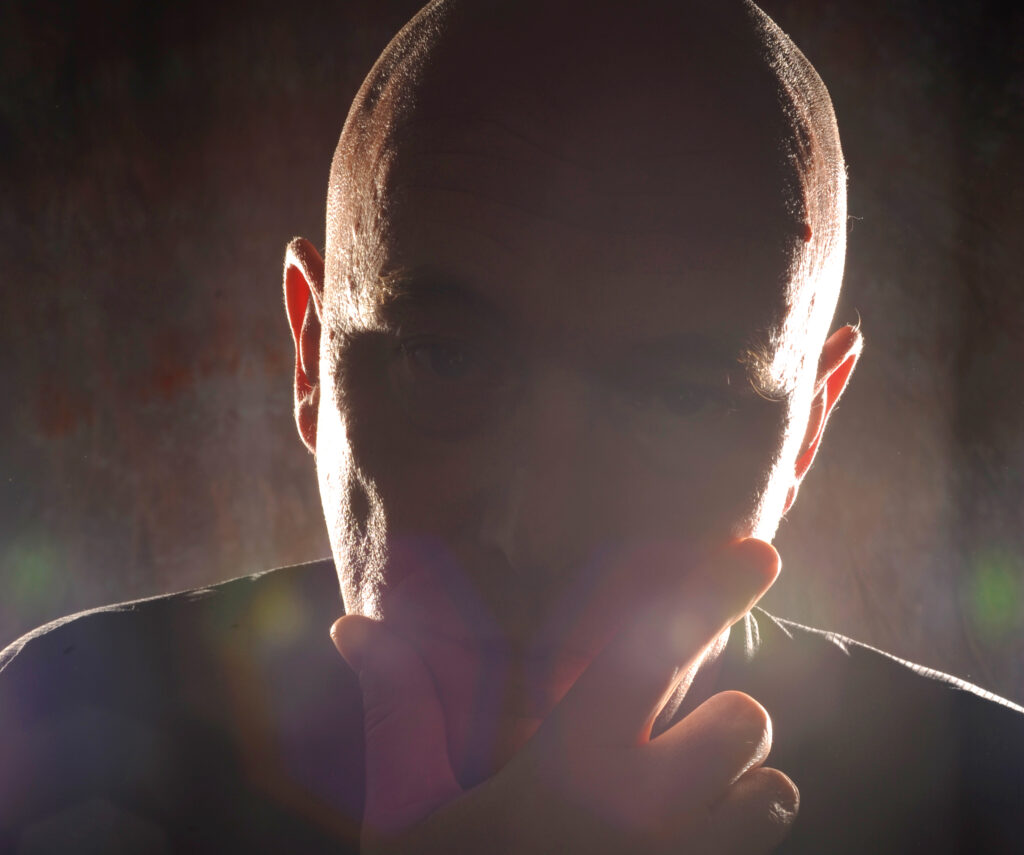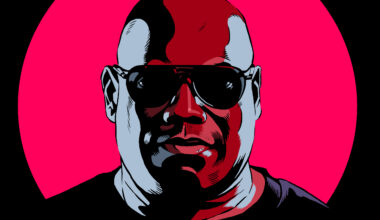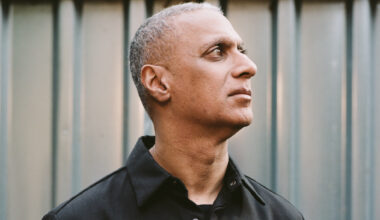The man behind the mighty On-U Sound label, dub kingpin Adrian Sherwood, shares a few of the formative influences that have shaped him and his considerable studio smarts

JAMAICAN SOUND SYSTEMS
It was the early 70s, maybe 1972 or 1973, when I first came in contact with the Jamaican soundsystems and they had a massive influence on me. I was 12 and living in High Wycombe in Buckinghamshire, and there was a club there called Newlands, later known as Twilight, that had lots of soundsystems on and I’d go and stand outside. Even from the outside it sounded amazing, you could hear the doors rattling and the optics behind the bar clinking from the sound.
By the time I was 14 or 15, I had a lot of West Indian friends and went to a lot of parties around the town. There were always house parties going on somewhere and once people got to know you and knew you weren’t an idiot or the police, you’d be welcome. I found the music and the soundsystems fascinating. You had the subsonic sound and the really extreme trebles going on, it’s amazing when you think, at that time, those noises were made by human beings. A decade later, and for the last 35 years, they’ve been made by machines.
VERSION CULTURE
Around in 1980 and 1981, when the 12-inch single first came about, I was involved in making some of the earliest remixes. These remixes weren’t like what we know as remixes today, they were more like extended versions on 10-inch or 12-inch, or bootlegs, although there was a lot of hoo-ha about the copyright. But it was the “version” culture that came out of reggae after that had a big influence on me. You’d have one rhythm and then countless different versions of that rhythm, with different vocalists performing over it. It’s something that’s totally alien to all other types of music, you wouldn’t remix, say, Primal Scream and have the singer from Depeche Mode on it. Still to this day it’s something that you’ll only find in reggae culture. But in many ways its legacy is the modern remix as we know it.
PRODUCTION KNOW-HOW
I remember hearing The Jesus And Mary Chain for the first time. Geoff Travis had just started working with them and he was playing me stuff from their first album. I was totally blown away by the sound of it and the way it had been recorded. The guitars were huge and overwhelming and the drums were really pushed into the background. Because I’d come from a reggae background where everything tends to be really dry, and you’re going for quite a logical representation of a band playing with your recording, hearing that really opened up my mind to different ways of doing things.
At the polar opposite of that you’ve got The Fall, who are another big influence on me. I’d always wanted to work with Mark E Smith and a very interesting experience it was too. As a producer you have all these reverbs, phasers and the like at your disposal to process the sound. But Mark E Smith didn’t want any reverb, any delay or effects on anything. It was very anti-production, but it created a kind of tension in the sound which was very healthy.
SOUND EFFECTS
The use of sound effects on a recording is something I really got into. I remember visiting Daniel Miller and I was in the warehouse at Mute when I heard this record by Link Wray & His Wray Men I’d never heard before. In the middle, the sound effect of a waterfall comes in really high in the mix and obscures everything else. It was mindblowing. In a similar way to hearing The Jesus And Mary Chain, it showed you can really play around with the style of the perspective to change the emphasis. Hearing that gave me a lot of ideas. Of course, other people use sound effects really brilliantly too. Yellowman does it, and Lee Perry did it on ‘Blackboard Jungle’. I love the way the sound effects really leap into the mix all of a sudden.
GIMMICKS
I like things being interesting and having intelligent lyrics, but I’ve definitely been influenced by gimmicky records. Reggae records with silly voices at the beginning, like Joe Gibbs, made my initial connection to Parliament and Funkadelic. It goes through to the dub stuff I like, King Tubby’s vocal introductions and Lee Perry on ‘Blackboard Jungle’ again. I’ve always liked a record with a real sense of mischief on it. It’s that innocence, a naivety and irreverence, especially if it’s quite contradictory and the lyrics of the track are quite heavy or sad. Although I am a purist in some ways, I’ve got great admiration for something that’s not afraid to stand out and be different.
I always think people making music are like craftsmen. You can use that craft to copy something else or you can use it to pursue a new idea. I’m often trying to connect with that element of naivety that people had when they were working on the old gear and with tape. You have to work a lot harder when you’re using the same processes as everyone else, working on Pro Tools, which I do. In the past I’ve done everything from having speakers set up in corridors and playing in stone-floored toilets, playing things down tubes or through headphones that are overloaded, taping piano strings down… we even had massive tape loops running around eight or so mic stands, with people holding them in place.
Sherwood & Pinch’s ‘Man Vs Sofa’ is out on On-U/Tectonic





